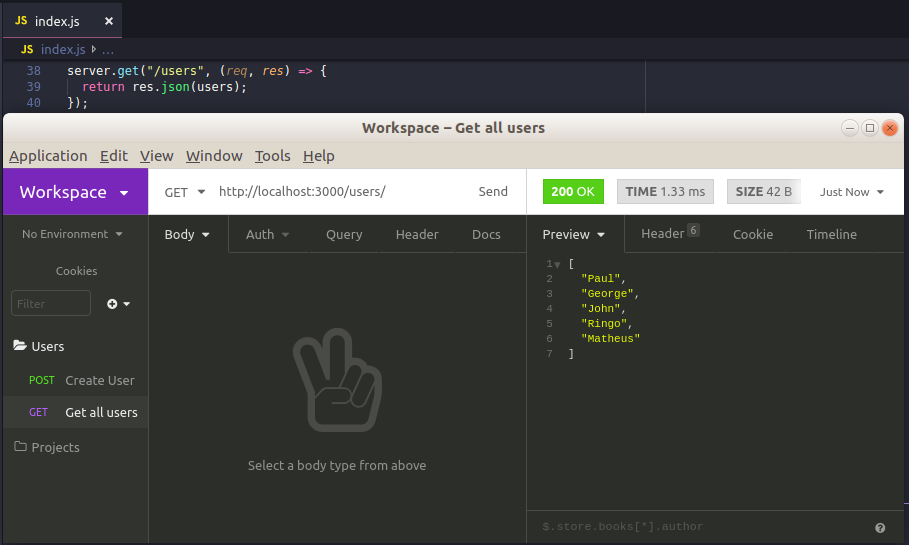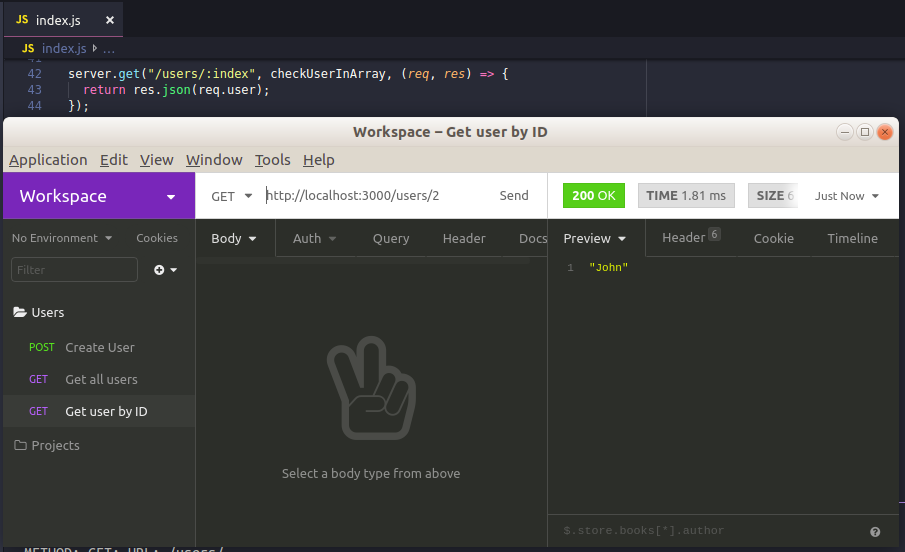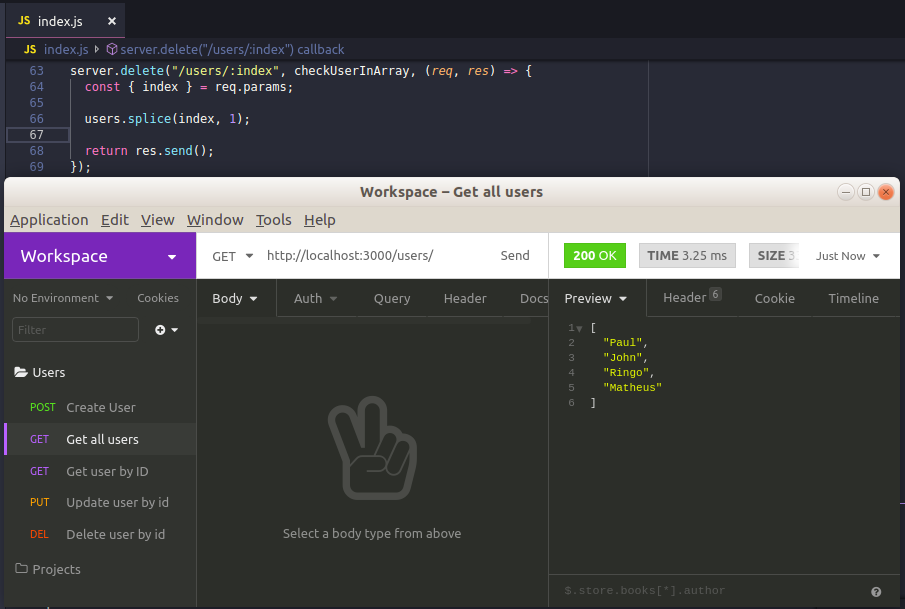CRUD using Express.js middleware

CRUD
CRUD means CREATE, READ, UPDATE and DELETE. In this article, we’re going to create these four functions, in an Express.js server, to handle a simple local array (This array will represent our database)
Server structure
Create a folder called src and run the commands yarn init -y and yarn add express inside that folder. Create a file index.js with the structure of our server:
const express = require("express");
const server = express();
server.use(express.json()); // Read JSON from req.body
const users = ["Paul", "George", "John", "Ringo"];
/*
All CRUD functions will be here
*/
server.listen(3000);
Create
To add a new user to our array, we’re going to use a POST method and pass the name of the user through the body of our requisition. Add the following function to your code:
server.post("/users", (req, res) => {
const { name } = req.body;
users.push(name);
return res.json(users);
});
Read
To read the users we’re going to use the GET method in two ways. One to read a specific user and the other to list all users in the array. Add the following functions to your code:
server.get("/users", (req, res) => {
return res.json(users);
});
server.get("/users/:index", (req, res) => {
return res.json(users[req.params.id]);
});
Update
To update a user, we’re going to use the PUT method:
server.put("/users/:index", (req, res) => {
const { name } = req.body;
const { index } = req.params;
users[index] = name;
return res.json(users);
});
Delete
Finally, to delete a user from our array we’re going to use the DELETE method:
server.delete("/users/:index", (req, res) => {
const { index } = req.params;
users.splice(index, 1);
return res.send();
});
Middleware
A middleware is a function that receives a requisition and response and process that data. Every function described here in the format (req, res) => {/** Do stuff **/} is a middleware. In Express.js, we can call one or more middleware in our requisitions.
Here, we’re going to define a global middleware that is going to be called before every other middleware. It will calculate the time of every requisition and print the method and the URL that is being called. The next parameter is necessary to call for the next middleware of our server instead of stopping the execution of the server:
server.use((req, res, next) => {
console.time("Request");
console.log(`METHOD: ${req.method}; URL: ${req.url}`);
next();
console.timeEnd("Request");
});
Create this two other middleware to check for errors in our calls to the server and add then to our CRUD methods:
function checkUserExists(req, res, next) {
if (!req.body.name) {
return res.status(400).json({ error: "User name is required" });
}
return next();
}
function checkUserInArray(req, res, next) {
const user = users[req.params.index];
if (!user) {
return res.status(400).json({ error: "User does not exists" });
}
req.user = user;
return next();
}
server.get("/users", (req, res) => {
/* Same code ... */
});
server.get("/users/:index", checkUserInArray, (req, res) => {
/* Same code ... */
});
server.post("/users", checkUserExists, (req, res) => {
/* Same code ... */
});
server.put("/users/:index", checkUserExists, checkUserInArray, (req, res) => {
/* Same code ... */
});
server.delete("/users/:index", checkUserInArray, (req, res) => {
/* Same code ... */
});
API Calls:
To test our server, use a REST client like Insomnia:
CREATE USER:

READ USER:


UPDATE USER:

DELETE USER:


You can check the complete code in this repo: https://github.com/matheus-beck/users-manager/
Thank you for your time! I hope you have liked this post! ![]()
Source: GoStack Bootcamp from RocketSeat